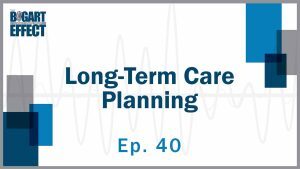67% of Americans have done nothing to prepare for their end of life, including creating an estate plan. Most people would agree with the importance of creating a care plan for their loved ones once they’re gone.
Yet, for many, the idea of considering their mortality keeps them from planning for the future.
If you’re ready to consider planning for the future, including when you’re gone, an estate planning checklist is just what you need.
Read on to learn more about end-of-life planning.
What Is End-of-Life Planning?
You’ve probably heard plenty of stories of people who become suddenly ill or injured, and their family is scrambling to know what to do.
When you participate in end-of-life planning, you create a financial and medical plan for yourself before and after death. These plans become even more significant if you cannot communicate your wishes to your loved ones as you near death.
Why Is End-of-Life Planning So Important?
Plenty of health care workers can tell tales of families huddled together attempting to make hard decisions for their loved ones because their wishes were unclear.
These plans become important because they remove the burden from families during times of great duress.
End-of-life plans can include everything from end-of-life care preferences and medical interventions to financial plans and funeral arrangements. It also includes discussing your wishes with loved ones, so they understand your preferences.
Things to Do Before You Die
For some people, preparing for an end-of-life checklist can help facilitate working through these complex decisions.
The simple truth is that any planning you do for your loved ones now will make things much easier for them when you’re gone.
Consider this list of things to do before you die as part of your planning.
Create Last Will and Testament
Most people know one of the end-of-life plans is to create a will. The will designates who receives your assets upon your death.
It can designate who gets your physical and financial assets. Most will documents name beneficiaries and even name an executor to carry out the wishes in the will.
Another important aspect of a will is to spell out your specific wishes for the care of minor children.
Revocable Living Trust
As part of their financial planning, many people will set up a revocable living trust. Not only will this spell out your financial wishes for the future, but it’s also a useful wealth management tool.
When you create a revocable living trust, you transfer your assets to the trust while you’re still alive. While alive, you can act as the trustee and then designate who will take on that role once you’re gone.
Update Beneficiary Designations
It’s important to not only have beneficiary designations but also to make sure they are up to date. The beneficiary is the person you name to receive assets like life insurance payments, pensions, and assets from investment accounts.
Many people name beneficiaries when they get a policy or an account, then don’t think about it again. But life is full of twists and turns, and people often find they want to change beneficiaries over time.
Make sure you check. Many places will allow you to name primary and contingent beneficiaries.
Create Power of Attorney, Medical and Financial
Another important aspect of estate planning is getting the power of attorney paperwork. There are two types of power of attorney paperwork you need, one for medical decision-making and one for financial issues.
You should name someone as your power of attorney who you trust implicitly. They will have the authority to act and make decisions on your behalf.
The financial POA will be able to act as you and make all finance-related decisions if you’re unable.
A medical POA has the authority to make medical decisions for you if you cannot make them yourself. It’s important to discuss your end-of-life wishes ahead of time with this person.
Create a Pet Trust
Many people have pets that are like family to them. While they feel like family, a pet is considered property in the eyes of the law.
If you have a pet, it’s important to plan for them. Designate who you want to care for your pet when you’re gone. You can even set aside funds to be used for their care.
Create a Living Will
A living will is not the same as the last will and testament. A living will spells out your healthcare preferences if you’re unable to do so yourself.
It’s good for your medical POA to understand what is a part of your living will, so the decisions they make jive with your wishes spelled out in the living will.
A living will allows you to identify which medical treatments, medications, and procedures you want to have and which you wish to decline, even when those decisions should be made.
Digital Assets
In today’s technology-driven world, many people have multiple online accounts.
While some might be social media accounts, others can connect to important financial parts of your life, like your bank, insurance, and investments.
It’s smart to use some password manager to keep track of your logins and passwords and who should have access to that information.
Funeral Pre-Planning
Many will struggle with considering their death. Yet, there are real advantages to funeral pre-planning.
Do you wish to be buried or cremated? What type of funeral would you prefer? You can be assured that your wishes are followed.
Most of all, it greatly reduces the stress on your loved ones during a difficult time.
Be Kind to Your Loved Ones by Handling This Estate Planning Checklist
Use this estate planning checklist to plan for the future and get your affairs in order. It assures your wishes are followed and makes things much easier for loved ones. It also spells out how you want all aspects of your financial and medical decisions made.
We have the experts in the you need if you’re looking for help with wealth management or estate planning for the future. Contact us today, and let us help you do your planning for the future.



